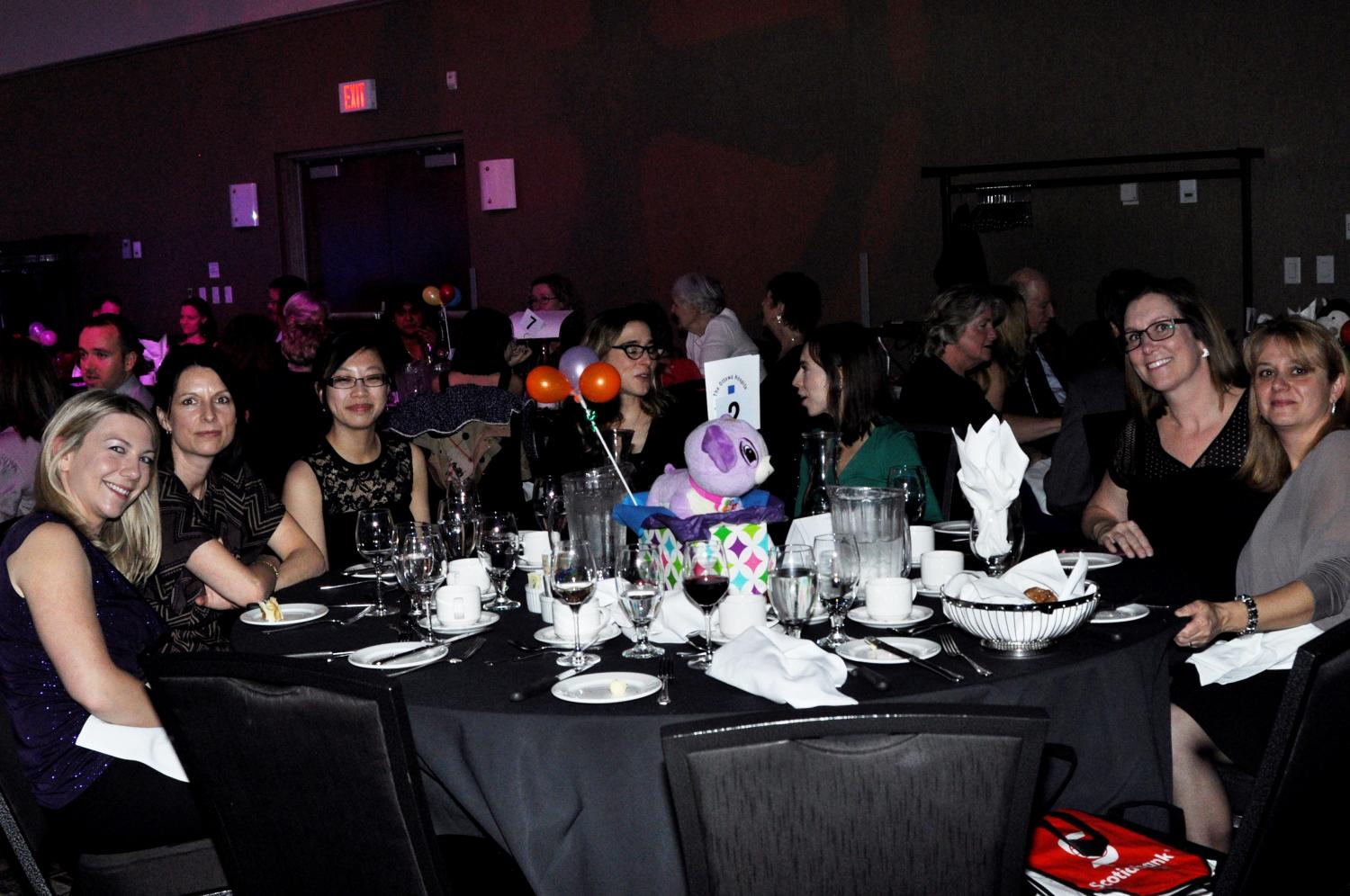
When your children prefer the family bed
Question:
Dear Adele,
We have a new baby at our home and a set of preschool twins. My wife often brings the baby to our bed as she finds nursing easier there. The twins seem to think our double bed belongs to them. When our family black lab decides to settle in for the night as well there is virtually no room left for me! I am wondering what solutions you might have to get everyone into their own bed, so I can have a good night’s sleep?
Sleepless
Answer
Dear Sleepless,
Co-sleeping is a controversial practice. It is seen in different types of families and cultures around the world.
Dr. Elisa Basora-Rovira writes of the pros and cons of co-sleeping with children in a health and wellness article entitled ”Should I be co-sleeping with my children?” The doctor says that children who sleep in their own bed, in their own space, have less difficulty falling asleep, sleep longer and wake less often. They have fewer waking problems in the morning and fewer future sleep problems. Children who co-sleep with adults tend to have lower sleep quality, more nightmares and more daytime sleepiness. The American Association of Pediatrics Sudden Infant Death Syndrome guidelines were updated in 2016 and recommended room sharing, rather than bed sharing, for infants up to 12 months of age.
Maria Carter wrote an article on July 7, 2020 in Parents.com entitled “Co-sleeping: pros and cons of the family bed.” Maria acknowledged that it was easier to breast-feed a baby in the family bed and that a new mother generally got more sleep with this arrangement. Bonding with children is sometimes enhanced and children often feel safer and more secure in the family bed. There is also a historical precedent in some cultures for co-sleeping. On the negative side Maria says that co- sleepers have lower sleep quality, greater anxiety and a tendency to develop sleep crutches. She suggests that marital relationships often suffer as well. Maria also speaks of the risk of suffocation, Sudden Infant Death Syndrome and others sleep related deaths in infants. She reports that a normal child has a one in 16,400 chance of SIDS when sleeping in the parent’s bed, but a one in 46,000 chance of SIDS sleeping in his or her own crib.
Dr. Kate Roberts, in Psychology Today, wrote an interesting article in 2014, entitled “The impact of chronic co-sleeping with an older child.” She tells us that co-sleeping with parents is at near epidemic proportions today. According to Parenting’s Mom Connection a surprising 45 per cent of moms allow their 8 to 12 year olds to sleep with them from time to time and 13 per cent permit it every night. These practices create additional life stress. Thirty per cent of these children have a medical diagnosis of ‘behavioral insomnia’. Chronic co-sleeping has a negative impact on the parent’s functioning too, as they may experience memory loss, fatigue, low-energy, depression and obesity.
According to Dr. Roberts the reasons that older children want to co-sleep are complex. Our society has created elevated levels of anxiety for the children with such factors as higher divorce rates, more frequent transitions, over scheduling, greater academic pressures and more time on devices. She says that children have become less self-reliant and have little experience being left alone under the age of 13 at bedtime. Co-sleeping then becomes a band-aid in response. Parents can experience chronic sleep deprivation and possibly a negative impact on their marital relationship. Children may even become handicapped with an inability to leave the home for overnight sleepovers, summer camps and the like.
In my opinion, Dr. Basora-Rovira sums it up for us best, in her statement, “The recommendation overall is that kids should sleep on their own, on their own surface, in their own room.”
So how to get that to happen, no doubt, is your conundrum, Sleepless! Your wife probably finds it easier to have the baby beside her. Your twin preschoolers have established a cozy little snuggling up habit that feels comfortable to them. The dog has found a soft warm spot that smells good at the bottom of the bed. And you have been thinking about going to Walmart to buy a cot, right? I am pretty sure I have the picture. I will try to help you out with a few ideas from my reading and from my life experience.
Firstly, have a private chat with your wife. Try to educate her about the disadvantages of co-sleeping with children and the danger to your infant of having him/ her in your bed when the whole family is vying for space and trying to sleep. I suspect once she hears about the incidence of SIDS and the negative effects of co-sleeping for the children, that she will come on board with a plan to have the children sleep on their own, in their own beds.
Next, you both have to decide that you’re going to take control over the nighttime in your home. Try putting the infant’s crib in your bedroom beside the adult bed so it is convenient for your wife to access the baby for breast-feeding, but safe for the infant while sleeping in his/her secure personal space. This should be the easiest of the changes.
Following this, have a long conversation with your dog and let him know that he has a lovely soft doggie bed complete with toys and treats on the floor. Make it crystal clear that, that is where he is expected to sleep. If you are armed with treats and a consistent verbal command to depart the family bed and sleep in his doggie bed, this change should not take too long.
The twins will be your biggest challenge and I suggest you start during the day commenting on the change that is coming up. Expect resistance. Agree with your wife to stay the course no matter the strategies used by your preschoolers. Try to use the behavioural retraining model where you gradually remove the parental comfort of co-sleeping and replace it with parental attention and nurturing before and after bedtime. Teach the children some self-soothing strategies before and during that time as well. You can discuss the importance of the behavioural change and the need for better sleep for the parents and for the children. You can talk to them about how grownup they are getting and that they should be able to handle sleeping on their own like big boys and girls and adults.
Consistency will be the most important thing in bringing about the change you desire. Once you decide the twins are not sleeping in your bed under any conditions you may have to walk the children 50 times back to their room each night, when they try to access the family bed to which they have grown accustomed. Keep repeating to them that they are big enough now to sleep in their own bed, in their own room. Stay calm. Stay cool. Stay consistent. In the end, the children will come to see that you are not changing your mind and that sleeping in their own beds is a decision mommy and daddy have made which will be enforced under virtually all conditions.
A good routine can be helpful in this. Many counsellors suggest beginning with a warm bath, brushing and flossing the teeth, reading a story, singing relaxing songs, spending some time talking about calm things, or saying prayers. Others have suggested no electronics 1 to 2 hours before going to bed. Some suggest breaking the sleep associations like falling asleep with a bottle in the mouth or a breast of the mouth, being rocked to sleep, or having mommy or daddy lie in the bed. Children will come to learn that they can fall asleep and stay asleep on their own, without crutches such as these.
Providing children with rewards can also be helpful in bringing about behavioral changes. You might consider trying a chart on which children can place stickers for successful nights or partly successful nights. When the child earns enough stickers rewards can be provided such as an outing for an ice cream, a trip to the park, the canoe ride or a baking session with mom or dad. Some families use a variation on this theme by providing children with tokens for successful behavioral changes. When a child collects enough earned tokens, he/she can trade them for rewards laid out by the parents.
I will leave you with a few humorous quotes on the subject from which you can take heart if you get frustrated in trying to bring about the sleep-time changes you desire:
“Any kid will run any errand for you if you ask at bedtime.” — Red Skelton
“Everyone should have kids. They are the greatest joy in the world. But they are also terrorists. You’ll realize this as soon as they are born and they start using sleep deprivation to break you.” — Ray Romano
“People who say they sleep like a baby, usually don’t have one.” — Leo J. Burk
Best wishes and sweet dreams, Sleepless!
Adele
Photo: Simon Berger, Unsplash








